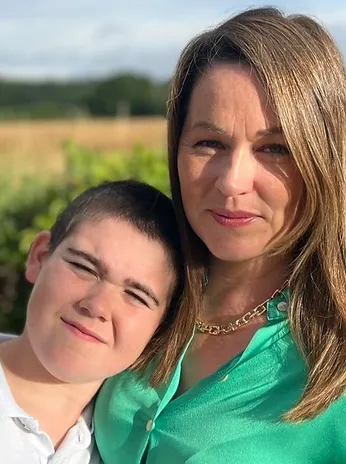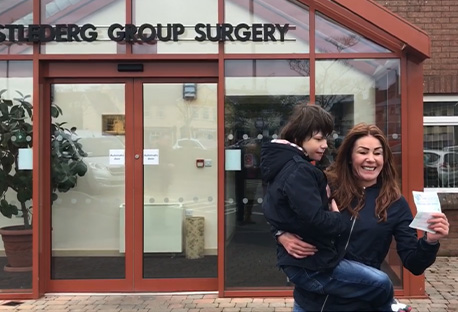How the law changed: UK legalisation of medical cannabis
9 min read
Emily Ledger
On the 1st of November 2018, legislation was introduced that was celebrated by patients, families, and advocates all over the UK. The rescheduling of cannabis meant that cannabis-based medicines could be legally prescribed for a range of conditions, marking a historic moment. But how did the law change come about? And has it lived up to the expectations of those who continue to fight for fair access to medical cannabis?
Contents
Following almost 50 years of outright prohibition of the drug in the UK, the government announced that it would once again be legal to prescribe medical cannabis across the country. Of course, this came with caveats, such as patients only being able to access such products after two or more “conventional” drugs had failed to achieve adequate relief. Nonetheless, as the 1st of November 2018 rolled around, hundreds of thousands of people up and down the country rejoiced.
Yet, over five years on from this fateful date, study after study continues to reveal the general lack of awareness around medical cannabis laws in the UK. So, how exactly did we get here, and, how much further do we have to go?
In this article, we’ll take a look at the timeline that eventually led to the legalisation of medical cannabis in the UK, the campaigners and patients who helped us to get here, and the progress that has been made in the years since.
A Brief History of UK Medical Cannabis Law
Cannabis has been listed as a controlled substance under UK law since 1928. Its inclusion in the 1928 amendment to the 1920 Dangerous Drugs Act made the possession and supply of cannabis illegal for the first time; however, doctors were still able to prescribe cannabis as a medical treatment right up until the introduction of the Misuse of Drugs Act in 1971.
Under this legislation, cannabis was listed as a Schedule 1 Controlled Substance which meant it was considered to have no approved medicinal use. It is also listed as a Class B drug alongside codeine, ketamine and ‘spice’, despite a temporary reclassification to Class C in the 2000s.
Following its reclassification as a Class B drug under Schedule 1 of the Misuse of Drugs Act in 2009, the import, export, supply, and production of all forms of cannabis remained controlled in the UK, except under a Home Office licence.
These restrictions remained in place until October 2018, following a series of high-profile patient cases, Home Office-commissioned reviews, and their subsequent recommendations.
The Turning Point - The road to legalisation
The prohibition of cannabis in the late 20th and early 21st centuries significantly limited scientific research into the medicinal potential of the plant and its derivatives. Nonetheless, the medicinal use of the plant remained popular in many parts of the world, including the UK, for a wide range of conditions. Yet, it wasn’t until the high-profile cases of two child patients, Billy Caldwell and Alfie Dingley, that the UK government considered the legalisation of medical cannabis in earnest.
The Children (and their families) Who Helped Change the Law
Alfie Dingley and Billy Caldwell, aged seven and 13 respectively at the time of the law change in 2018, were both diagnosed with rare forms of epilepsy in infancy. Despite suffering hundreds of seizures every month, doctors were unable to find an effective solution with conventional epilepsy medications. In their desperation and after researching alternative treatment options, Alfie’s and Billy’s parents considered medical cannabis - and the results were stunning.

Image source: https://www.hannahdeacon.co.uk/
In 2017, Alfie’s mother, Hannah Deacon, found that a cannabis oil which could be legally prescribed in the Netherlands drastically improved his condition. Despite requiring only a small dose of the oil, in comparison to high volumes of potentially harmful steroids and other medications previously prescribed as part of his treatment, Alfie was denied a licence to use the medication in the UK in early 2018.

Image source: https://iambilly.uk/
Similarly, Billy’s mother, Charlotte Caldwell, also found cannabis oil to be effective at significantly reducing the frequency and severity of her son’s seizures. Billy experienced his first seizure in 300 days after his medication, acquired in Canada, was confiscated at Heathrow Airport.
While Ms Caldwell was initially told that the medicine wouldn't be returned, the Home Office released the medication after Billy suffered a life-threatening seizure. Billy would later be granted one of the first NHS prescriptions for medical cannabis.
The two cases drew widespread condemnation from campaigners and MPs and eventually prompted the Home Office, headed by Sajid Javid at the time, to request a review into the medicinal potential of cannabis from Chief Medical Officer (CMO) and later a second review by the Advisory Council on the Misuse of Drugs (ACMD).
Recommendations from the Chief Medical Officer
The first part of the review was conducted by Professor Dame Sally Davies, the then-CMO. Tasked with examining the existing research into the therapeutic and medicinal benefits of cannabis-related medicinal products, her report was published on the 3rd of July 2018. It concluded that:
- “There is clear evidence from highly respected and trusted research institutions that some cannabis-based medicinal products have therapeutic benefits for some conditions.”
- “As Schedule 1 drugs by definition have little or no therapeutic potential, it is therefore now clear that from a scientific point of view keeping cannabis-based medicinal products in Schedule 1 is very difficult to defend.”
Recommendations from the AMCD
The Advisory Council on the Misuse of Drugs (ACMD) has consistently recommended against the classification of cannabis as a Class B drug. It was on recommendation from the AMCD in 2004 that the government reclassified cannabis from a Class B to a Class C drug - a recommendation that was subsequently ignored in the 2009 classification reversal.
Following the conclusion of the CMO’s review in the summer of 2018, the ACMD was tasked to conduct the second part of the review. This review concluded that cannabis-derived medicinal products of the appropriate standard should not be subjected to Schedule 1 requirements and that more clinical trials to establish the safety and efficacy of these products are urgently required.
The AMCD’s review also recommended that products meeting the definition of a cannabis-derived medicinal product be moved into Schedule 2 of the Misuse of Drugs Act.
Developments Since the 2018 Law Change
On the 1st of November 2018, patients, families, and campaigners around the country rejoiced as the UK’s new medical cannabis legislation was rolled out. However, it wasn’t long before the new guidelines faced criticism.
While many patients and families believed the new rules would make medical cannabis available for prescription through the NHS, it soon became evident that this wouldn’t be the case. To date, there have been fewer than five NHS prescriptions for medical cannabis. This is largely attributed to an ongoing lack of high-quality clinical evidence.
Recommendations on the prescription of medical cannabis
On the 11th of November 2019, the National Institute of Health and Care Excellence (NICE) published its recommendations on the prescription of medical cannabis. The guidance recommends the use of cannabis-based medicinal products for only a handful of conditions - and even then, certain criteria should be met. These include:
Intractable nausea and vomiting: Nabilone can be considered as an add-on treatment in adults with chemotherapy-induced nausea which persists with optimised conventional antiemetics.
Spasticity: A 4-week trial of THC:CBD spray may be offered to treat moderate to severe spasticity in adults with multiple sclerosis, if:
- Other pharmacological treatments for spasticity are not effective
- The company provides THC:CBD spray according to its pay-for-responders scheme
Severe treatment-resistant epilepsy: Epidyolex has been licensed for the treatment of Dravet and Lennox-Gastaut syndromes, two rare forms of epilepsy.
The Medical Cannabis Access Bill
In 2021, the Medical Cannabis Access Bill, a Private Member’s Bill sponsored by Labour MP Jeff Smith, was presented to politicians in the House of Commons. The bill aimed to improve patient access to medical cannabis by allowing GPs to prescribe cannabis-based medicines (an action that can currently only be fulfilled by a specialist doctor).
Furthermore, the bill would establish a Commission to propose a framework for the assessment of cannabis-based medicinal products and their suitability for prescription in England, as well as make recommendations to overcome current barriers to access through the NHS.
Despite support from patients and advocates, the bill failed to receive adequate support in the House of Commons. Access to medical cannabis through the NHS remains extremely rare.
The Role of Private Medical Cannabis Clinics
Given the extremely low rate of prescribing through the NHS, private clinics have been vital in plugging the gap between those who can access medical cannabis and those who could benefit. Today, over 32,000 patients have accessed cannabis-based medicines through private clinics like Releaf for a wide range of conditions.
According to the National Institute for Health and Care Research, no government-funded medical cannabis clinical trials are ongoing, despite recommendations made over five years ago. In addition to providing access to patients across the country, medical cannabis clinics have also become essential in collecting real-world data on the safety and efficacy of medical cannabis treatment.
Final Thoughts
The legalisation of medical cannabis in November 2018 was seen by many at the time as a historic moment. But while tens of thousands of patients in the UK have now gained access to these life-changing medicines, there is still a long way to go.
Share article
Did you like this article?
It is important to seek medical advice before starting any new treatments. The patient advisors at Releaf are available to provide expert advice and support. Alternatively, click here to book a consultation with one of our specialist doctors.
Elevate your wellness with medical cannabis
Get comprehensive care, convenience, and confidence with an all-in-one treatment plan.
Am I eligible?Authors
Emily, an accomplished content writer with a specialisation in cannabis and alternative health, leverages her five years in the sector to enhance education and diminish stigma around medicinal cannabis use.
Editorial Policy
All of our articles are written by medical cannabis experts, guided by strict sourcing guidelines, and reference peer-reviewed studies and credible academic research. Our expert clinical team and compliance specialists provide valuable insights to ensure accuracy when required. Learn more in our editorial policy.
Need more help?










